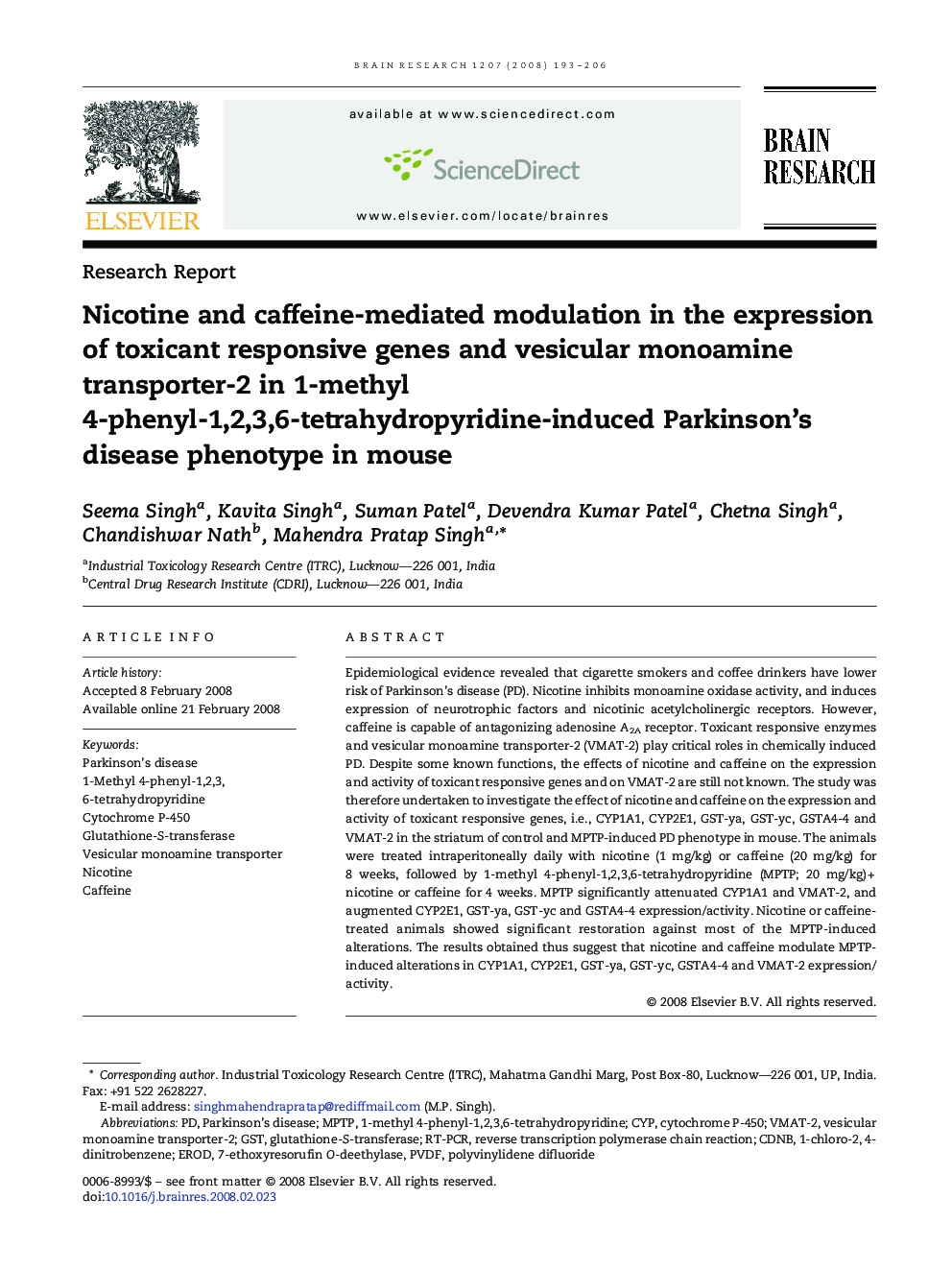| Article ID | Journal | Published Year | Pages | File Type |
|---|---|---|---|---|
| 4329911 | Brain Research | 2008 | 14 Pages |
Epidemiological evidence revealed that cigarette smokers and coffee drinkers have lower risk of Parkinson's disease (PD). Nicotine inhibits monoamine oxidase activity, and induces expression of neurotrophic factors and nicotinic acetylcholinergic receptors. However, caffeine is capable of antagonizing adenosine A2A receptor. Toxicant responsive enzymes and vesicular monoamine transporter-2 (VMAT-2) play critical roles in chemically induced PD. Despite some known functions, the effects of nicotine and caffeine on the expression and activity of toxicant responsive genes and on VMAT-2 are still not known. The study was therefore undertaken to investigate the effect of nicotine and caffeine on the expression and activity of toxicant responsive genes, i.e., CYP1A1, CYP2E1, GST-ya, GST-yc, GSTA4-4 and VMAT-2 in the striatum of control and MPTP-induced PD phenotype in mouse. The animals were treated intraperitoneally daily with nicotine (1 mg/kg) or caffeine (20 mg/kg) for 8 weeks, followed by 1-methyl 4-phenyl-1,2,3,6-tetrahydropyridine (MPTP; 20 mg/kg) + nicotine or caffeine for 4 weeks. MPTP significantly attenuated CYP1A1 and VMAT-2, and augmented CYP2E1, GST-ya, GST-yc and GSTA4-4 expression/activity. Nicotine or caffeine-treated animals showed significant restoration against most of the MPTP-induced alterations. The results obtained thus suggest that nicotine and caffeine modulate MPTP-induced alterations in CYP1A1, CYP2E1, GST-ya, GST-yc, GSTA4-4 and VMAT-2 expression/activity.
